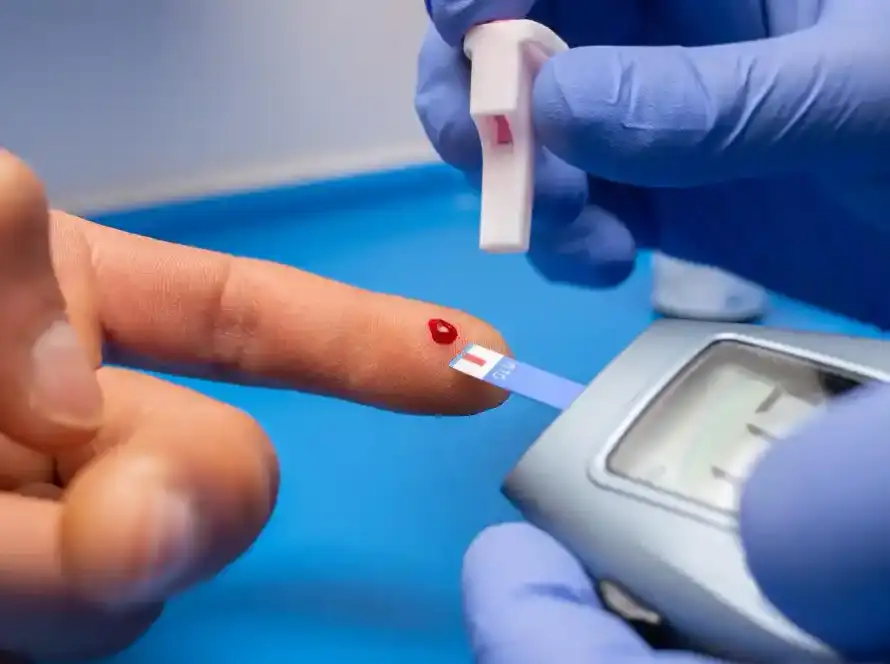Depression is a prolonged mental health condition characterised by persistent sadness, emptiness, and a lack of interest in daily activities. Unlike temporary sadness, depression can affect daily life, sleep, appetite, and energy levels for weeks or longer.
Symptoms include persistent sadness, fatigue, difficulty concentrating, changes in sleep patterns, feelings of worthlessness, loss of interest in activities, and thoughts of self-harm or suicide. Once identified, it’s essential to seek help.
Depression is common among university students due to academic pressures, financial stress, and adjusting to new environments. You’re not alone—many students face similar challenges, and OOU provides support to help manage these feelings.
The Directorate of Health Services (DHS) offers confidential counselling and mental health support. You can visit any of our facilities to learn about available resources.
Counselors are trained to listen, offer guidance, and help you develop coping strategies. Talking openly with a mental health professional can help you understand your feelings and find practical ways to manage depression.
Reach out to an academic advisor or professor to discuss your challenges. They may offer options like adjusting your course load, extending deadlines, or taking a temporary leave to focus on your health.
Yes, depression can lead to physical symptoms like headaches, fatigue, digestive issues, and changes in appetite or weight. Taking care of your mental health is essential for your overall well-being.
Exercise, a balanced diet, regular sleep, and practicing mindfulness can all positively impact mood and energy. Small lifestyle changes can support other treatments like counselling.
If you’re experiencing severe depression symptoms or thoughts of self-harm, visit the DHS immediately or call us via any of the ways included here. Also, speak with someone you trust.
Encourage them to talk to someone, such as a counselor or a trusted professor. Be supportive, listen without judgment, and offer to accompany them to DHS if they’re open to it. Remember, you don’t have to solve their problems but can be a supportive friend.
University life brings exciting challenges, friendships, and opportunities for growth.
However, it can also come with stress, pressure, and unexpected emotional struggles.
If you’re experiencing depression, remember that you’re not alone.
Many students go through similar feelings, and OOU offers support systems and resources to help you manage.
Here’s a guide to recognising and addressing depression as an OOU student.
Depression: Recognising the Signs
Depression is a serious mental health condition that goes beyond temporary sadness.
It can affect your mood, energy, concentration, and daily activities.
It affects how a person feels, thinks, and handles daily activities, often causing a persistent feeling of emptiness, hopelessness, and loss of interest in previously enjoyed activities.
While anyone can experience depression, factors like genetics, brain chemistry, life events, and prolonged stress can increase the risk.
Here are some common signs:
- Persistent sadness or feelings of emptiness
- Loss of interest in activities you once enjoyed
- Difficulty concentrating or focusing on studies
- Changes in sleep patterns, such as insomnia or sleeping too much
- Feelings of hopelessness, guilt, or worthlessness
- Fatigue and low energy, even after rest
- Changes in appetite or weight
- Thoughts of self-harm or suicide
Emergency Support and Helplines
If you’re experiencing worse depression symptoms or having thoughts of self-harm, it’s important to seek help immediately.
Here’s what you can do:
- Visit OOU’s DHS: If you’re around the main campus, go to the Directorate of Health Services and request urgent mental health support.
- Call Our Emergency Helpline: Contact us at the Directorate of health services here for immediate assistance.
- Speak to a Trusted Person: Let a friend, family member, or someone you trust know how you’re feeling. They may help you seek additional help and support.
Seek Help Early
If you notice any of the above symptoms, even in their mildest forms, it might be time to reach out for help.
The Directorate of Health Services (DHS) offers counselling and mental health support for students dealing with depression.
The counselling services are confidential, so you can speak openly about what you’re going through.
- Visit the Directorate of Health Services: You can access help and support at any of our facilities closest to your residence. The staff are ready to offer guidance on any mental health issues you might have.
- Youth Friendly Centre (YFC): At the YFC, you can book a session with a counsellor to discuss your feelings and challenges. Speaking with a mental health professional can help you better understand your emotions and develop strategies to cope with them.
Build a support system.
When dealing with depression, it’s natural to want to withdraw, but connecting with others can help you feel less isolated.
Try reaching out to:
- Friends and Family: Share what you’re going through with people you trust. Sometimes, just having someone to listen can lighten your emotional load.
- Academic Advisors: If depression is affecting your academics, reach out to an understanding professor or advisor. They may offer flexibility or resources to help you catch up on assignments or exams.
- Student Support Groups: If you feel comfortable, consider joining a student support group where you can connect with others who may be facing similar challenges.
Practice Self-Care and Mindfulness
When dealing with depression, self-care is crucial.
Simple changes in your routine can have a positive effect on your mood and energy levels.
Try these strategies:
- Get Enough Rest: Aim for 7-9 hours of sleep each night. Create a bedtime routine and limit caffeine to ensure restful sleep.
- Stay Active: Physical activity, such as walking, jogging, or practising yoga, can boost endorphins, which are natural mood lifters. Try taking walks around the campus or using OOU’s sports facilities.
- Eat nutritious foods: What you eat can affect your mood. Prioritise a balanced diet with whole grains, vegetables, fruits, and lean proteins to fuel your body and mind.
- Practice mindfulness: Mindfulness exercises, such as deep breathing or meditation, can help reduce stress. Apps like Headspace and Calm offer guided mindfulness sessions, or you can try practising on your own with deep breathing techniques.
Set Small Goals to Reclaim Motivation
When you’re feeling down, it can be hard to stay motivated or keep up with schoolwork.
Break larger tasks into smaller, achievable goals.
For example:
- Focus on One Task at a Time: Instead of tackling an entire assignment, start with one section, like outlining or writing the introduction.
- Create a Daily Routine: A routine can bring a sense of order to your day. Write down small tasks, like attending classes or going for a walk, to help you stay engaged.
- Celebrate Small Wins: Acknowledge even small accomplishments, like finishing a reading or attending a class. Each small victory is a step forward.
Avoid Unhealthy Coping Mechanisms
During tough times, it’s easy to turn to unhealthy habits like alcohol or isolating oneself.
Instead, focus on positive coping mechanisms that can help:
- Limit Social Media: Constant scrolling can increase feelings of loneliness and inadequacy. Set time limits on social media or take a short digital detox.
- Avoid Self-Isolation: While it might feel comfortable, isolating yourself can worsen depressive symptoms. Make a conscious effort to spend time with people, even if it’s just for a short while.
- Steer Clear of Alcohol or Drugs: These can intensify feelings of sadness or anxiety, leading to a cycle that worsens depression over time.
Consider Academic Adjustments if Needed
If depression is affecting your studies, don’t hesitate to ask for academic support.
Here are some options:
- Reach Out to an Academic Advisor: Academic advisors can help you explore options like reducing your course load or taking a temporary leave if needed.
- Talk to Your Professors: Professors may offer extensions on assignments or make other accommodations if they understand what you’re going through.
- Use Campus Resources: OOU may offer additional tutoring or academic support services for students facing mental health challenges. Ask your department or the DHS for details.
Remember That Recovery Takes Time
Overcoming depression is a journey, and it’s normal to have both good and bad days.
Give yourself grace, and recognise that improvement may take time.
Focus on the small steps you’re taking toward feeling better, and don’t hesitate to reach out for help when you need it.
Dr. Obisesan Damola
Dr. Obisesan is a dedicated medical professional with over five years of experience in the Nigerian healthcare industry, having worked across primary, secondary, and tertiary healthcare institutions. A graduate of the prestigious College of Medicine, University of Ibadan—the foremost medical training institution in Nigeria—Dr. Obisesan is deeply passionate about the intersection of technology and healthcare, actively exploring and writing about how innovations are transforming the industry. Known for his professionalism, empathy, and commitment to excellence, Dr. Obisesan combines clinical expertise with a forward-thinking approach to improve patient care and outcomes. Beyond medicine, he is dedicated to mentorship, research, and community engagement, embodying a holistic approach to advancing healthcare.




